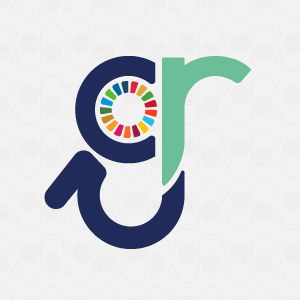Erasmus+ Mobility Togo & Cameroon
The UoC maintains Erasmus+ student and research exchange programs with the University of Lomé in Togo and the University of Dschang, Cameroon.
Togo
The University of Lomé (UL) is the largest University in Togo. It was founded in 1970 and was, till 2004, the only institute of higher education in Togo. Internationalization plays an important role for the university since its foundation, the university commits itself to the context of globalization by seeking co-operation and promoting the exchange of all actors (students, teacher-researchers and administrative and technical staff) with other universities.
The institute of German studies of the UL and the UoC maintain a long and deep cooperation. German studies play an important role in Togo, as there are currently 92.500 German students in Togo (at high school and university level). The UoC owns a re-known center for German studies, as well as the ZfL, one of Europe’s largest centers for teacher education. The Erasmus+ exchange supports therefore to build long lasting academic networks between Germany and Togo
The contact to the University of Lomé was established by a student from Lomé that came to Cologne with a DAAD grant in 2008/9 to write his final thesis at the German studies department at the UoC. The UoC, especially the department of German studies, is building up cooperation structures with Lomé since 2011 and has continuously intensified the activities. In 2011 a delegation of faculty staff from the international office and the German studies department of UoC visited UL. From 2010-2014 the exchange of students was founded by a regional program of the federal state of North-Rhine Westphalia. Building on this cooperation different conferences and exchange of scholars did take place in the following years. With the Erasmus+ mobilities, we will now build up a long-term exchange program.
Furthermore, the University of Lomé has a very long-standing partnership, in particular with the German Federal Ministry of Education and Research (BMBF) in the field of research and development. Indeed, BMBF has been working with the University of Lomé in Togo since 2012 as part of the West African Science Service Centre on Climate Change and Adapted Land Use (WASCAL) as well as with the scientific community and decision-makers.
In order to embrace this project, the University of Lomé intends to promote research and development and to duly train students at the Master and Doctorate levels of the Faculty of Science of the University of Lomé as well as students in the fields of forestry, climate change (including renewable energy) and related fields. This exchange of students and staffs between the University of Lomé and the University of Cologne in the framework of Erasmus+ Mobility will enable Master and Doctorate students of the Faculty of Science to exchange, extend and deepen their training and research project, in particular in the field of genome sequencing at the Faculty of Medicine and the Faculty of Mathematics and Natural Sciences in Cologne and thus pave the way for joint research projects.
Available scholarships (per year):
Staff exchange (Incoming/Outgoing): 1 / 1
Student exchange (Incoming/Outgoing): 4 / 1
Cameroon
The University of Dschang has its roots in three agricultural training schools offering programs for rural areas. Since the 1970s, several institutes emerged, the University of Dschang was finally created in 1993 and comprised 5 faculties and 2 Institutes. University of Dschang is a bilingual university, strategically located at the fringes of English and French speaking regions of Cameroon. It has 529 teaching staff, 672 non-teaching staff and about 35,000 students including 765 foreigners.
The contact to University of Dschang was established by PD. Dr. habil. Filomain Nguemo from the Institute of Neurophysiology at the Medical School University of Cologne. Two DAAD-funded Fact-Finding-Missions (FFM) (2015 and 2017), initiated by Dr. Nguemo, were conducted together with other institutes of the University of Cologne in order to evaluate how the Faculty of Medicine (FoM) could support the foundation of a medical faculty in Dschang. In September 2017, a delegation of the University of Dschang came to Cologne to exchange knowledge and discuss further cooperation. As possible joint teaching projects, there were mentioned human medicine, health economics, food security and Mathematics and Natural Sciences. Besides the Fact-finding mission, a Summer School was organized in Cologne, 20 students of the University of Dschang spent two weeks in Cologne. The faculty of medicine was founded in Dschang by a decree of the Cameroon president in 2017. In 2018, three researchers from Cameroon participated at the Food Security Conference in Cologne, where they presented their research.
In February 2019, a delegation of the University of Cologne went to Dschang, in order to discuss and plan further cooperation possibilities. In the same Year, Prof. Dr. Nguelefack visited the Faculty of Medicine in Cologne as an Alexander von Humboldt fellow.
The Erasmus+ mobilities will allow to depend the existing cooperation with exchanges in Medicine and further fields, such as, natural and social sciences, with a special focus on different aspects agriculture and food security.
Available scholarships (per year):
Staff exchange (Incoming/Outgoing): 1 / 1
Student exchange (Incoming/Outgoing): 5 / 2
Contact Person
Contact Person

Dr. Thilo Zimmermann
Project Coordinator
Telefon +49-221-470-5016
E-Mail t.zimmermann(at)verw.uni-koeln.de
Webseite
Further Information
Global Responsibility
Global Responsibility combines internationalization with third mission in order to spread and transfer the knowledge generated by the University of Cologne in our local, regional and global networks and contribute to global change. Global Responsibility expresses thereby an attitude, which defines the role and the motivation of a university to act globally. It emphazises that all actions have a global impact of which every individual should be aware of. It is the task of a university to generate and spread knowledge in order to overcome old concepts and raise global awareness.
